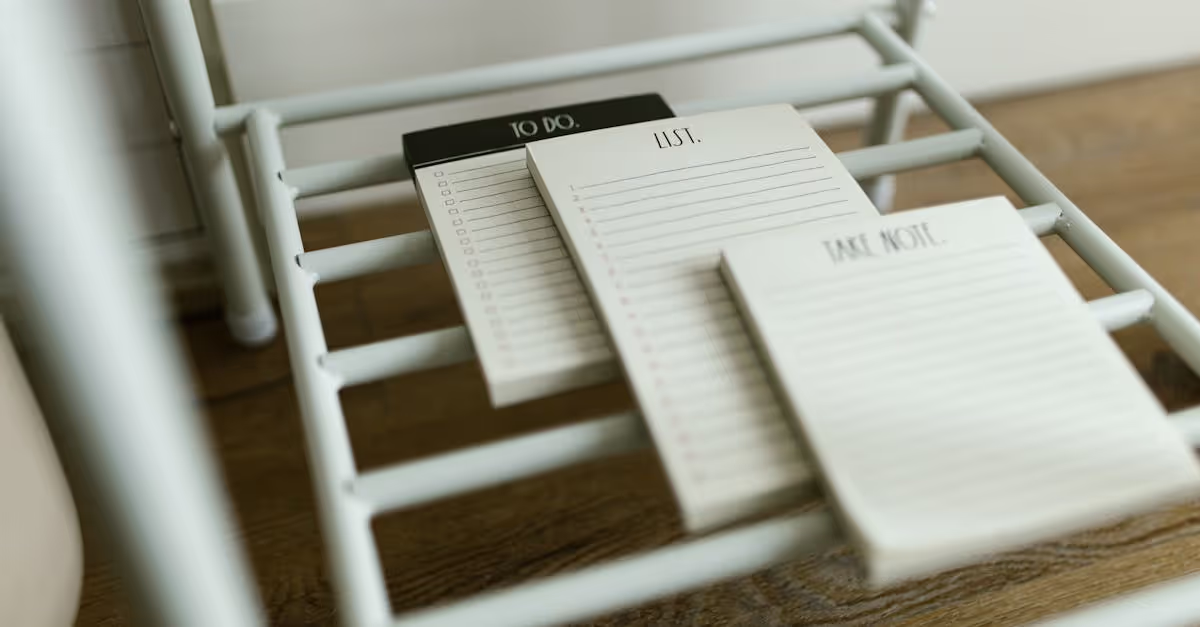Key Takeaways
- Regular Maintenance is Key: Performing essential pool cleaning tasks can extend the lifespan of your pool by up to 50%, protecting your investment.
- Preventative Care: Regular cleaning helps to prevent algae growth, cloudy water, and unpleasant odors, ensuring a safe swimming environment.
- Essential Tools: Equip yourself with crucial tools such as skimmer nets, pool brushes, and test kits to effectively tackle cleaning tasks.
- Routine Schedule: Establish a routine for daily, weekly, and monthly cleaning tasks to maintain optimal water clarity and pool health.
- Engagement and Community: Involve friends and family in pool maintenance to make cleaning a fun group activity, sharing tips and experiences in the process.
- Chemical Balancing Matters: Regularly test and balance pool water chemistry to prevent skin irritation and maintain a safe swimming experience.
Owning a pool can be a refreshing escape, but it also comes with responsibilities. Did you know that regular maintenance can extend your pool's lifespan by up to 50%? By keeping up with basic cleaning tasks, we not only ensure a sparkling oasis but also safeguard our investment.
In this article, we’ll walk through a comprehensive checklist of essential pool cleaning tasks that should be performed regularly. From skimming debris to balancing chemicals, these simple yet effective steps can make all the difference. Let’s dive in and discover how we can keep our pools clean and inviting all season long.
Importance Of Regular Pool Cleaning
Regular pool cleaning plays a critical role in maintaining a safe and inviting swimming environment. Neglecting these tasks can lead to algae growth, cloudy water, and unpleasant odors. Cleaning lets us enjoy our pool to the fullest without any concerns.
Consistent maintenance protects our investment. A clean pool can last longer, saving us money in repairs and replacements. Pools that receive regular care see an increase in lifespan by up to 50%. Think of it as insurance for our backyard oasis.
Regular cleaning tackles common issues. Keeping debris at bay stops unwanted critters from making our pool their home. Maintaining chemical balance prevents skin and eye irritations. These simple actions go a long way in preserving our pool’s condition.
Efficiency matters. Using tools like job scheduling software for technicians streamlines the cleaning process. Automated field service solutions help us manage cleaning tasks effectively. We can implement technician scheduling tools to make sure cleaning occurs consistently, keeping our pools in optimal shape.
Let's not forget the fun part! Engaging our friends and family in pool maintenance can transform a chore into an enjoyable group activity. How about turning skimming into a competition? Whoever collects the most leaves gets a free ice-cold drink!
We also enhance our customer engagement for service companies by keeping our pools clean. A tidy pool draws neighbors and friends to enjoy gatherings. When the sun's shining, we want everyone to dive in without hesitation.
Ignoring our pool cleaning checklist leads to bigger problems down the line. Cloudy water isn’t just unattractive; it can signal bigger issues like improper chemical balance. Addressing these problems early safeguards our health and our pool's integrity.
Community contributes to pool care. Sharing tips and tricks with fellow pool owners creates a support network. Pool parties often lead to unexpected advice; we all have our own experiences! We can pool (pun intended!) our insights, making the task easier for everyone.
A clean pool reflects our commitment to upkeep. Whether through service business automation or service dispatch software, we can streamline our processes. Efficiency not only eases our workload; it brings peace of mind, knowing our pool is always ready for enjoyment.
Essential Tools For Pool Cleaning
Regular pool cleaning requires the right tools to get the job done effectively. Having essential equipment not only simplifies the maintenance process but also helps us enjoy a clean swimming experience. Let’s look at the necessary tools for our weekly pool care routine.
Cleaning Equipment
- Skimmer Net: We use skimmer nets to remove leaves, bugs, and other debris from the water's surface. A good skimmer can capture even the smallest bits floating around.
- Pool Brush: Pool brushes help us scrub the walls and floor of the pool. Choosing a brush with nylon bristles is best for vinyl liners, while a stainless-steel one works well for plaster pools.
- Hose Vacuum: We rely on hose vacuums to clean the pool floor. These vacuums connect to the skimmer to suck up dirt and debris, making our efforts much more effective.
- Test Kits: Test kits help us monitor chlorine levels and pH. A balanced pool means a safer swim for everyone.
- Automated Cleaners: Automated cleaners save us time. We can set them up, and they do the cleaning work while we relax.
Protective Gear
- Gloves: We wear gloves to protect our hands from chemicals. Keeping our skin safe is a no-brainer when handling pool solutions.
- Safety Glasses: Safety glasses shield our eyes from splashes. It's always wise to protect our vision while cleaning.
- Pool Shoes: Wearing pool shoes helps us maintain grip around wet areas. We need to stay safe while moving around the poolside.
- Sun Protection: For our outdoor cleaning days, sunscreen is a must. We want to enjoy the sunshine and protect our skin.
- Respirator Mask: When dealing with harsh chemicals, using a respirator mask keeps us safe from inhalation risks. It’s better to be cautious.
A Comprehensive Checklist For Basic Pool Cleaning Tasks
Regular pool cleaning tasks keep our swimming area inviting and safe. Here’s a checklist to help maintain that perfect pool ambiance.
Skimming The Surface
Skimming the pool surface collects leaves and debris. We can use a skimmer net for this task. Aim to skim daily if we want clear water. Just imagine diving into a pool that resembles a leaf-filled soup. No one wants that! Regular skimming keeps our water looking fresh.
Brushing The Walls And Floor
Brushing the walls and floor prevents algae growth. A pool brush helps us remove dirt and buildup. Focus on corners and steps, as they tend to collect more grime. Brushing at least once a week keeps our pool cleaner. Think of it like giving our pool a much-needed bath. After all, who likes swimming in a dirty pool?
Vacuuming The Pool
Vacuuming is essential for removing debris that skimming misses. We can use manual or automatic vacuums. Aim for vacuuming once a week to keep our pool sparkling. Consider this the "deep cleaning" day—like when we tackle the dust bunnies in the corners of our homes!
Checking And Balancing Water Chemistry
Checking and balancing water chemistry ensures safe swimming conditions. We should test the water at least once a week. This includes checking pH levels and chlorine content. Maintaining these levels prevents skin irritation and keeps algae at bay. A well-balanced pool is like a well-balanced diet: good for everyone involved!
Emptying The Skimmer And Pump Baskets
Emptying the skimmer and pump baskets is crucial for proper filtration. We should do this weekly to maintain optimal water flow. Picture our pool’s filtration system like a team of lifeguards—if they’re overwhelmed, they can’t do their job well. Keeping these baskets clear means a cleaner, healthier swimming space for us and our guests.
Frequency Of Pool Cleaning Tasks
Regular pool cleaning tasks maintain clear water and a welcoming environment. Setting a schedule helps us stick to essential maintenance without feeling overwhelmed.
Daily Tasks
Daily tasks include skimming leaves and debris from the surface. This quick action prevents buildup that can lead to algae growth. Checking the water level also fits here. If it's low, adding water keeps our pool at the proper level for optimal function. Using a skimmer net makes this process simple and effective, letting us enjoy our pool without distractions.
Weekly Tasks
Weekly tasks require a bit more effort but are crucial for pool health. We should brush the walls and floor to eliminate dirt and algae residues. Vacuuming the pool provides a deep clean and removes hidden debris. Testing and balancing chemicals at least once a week confirms safe swimming conditions. Additionally, we empty skimmer and pump baskets to keep filtration optimal. These tasks create a routine that fosters a clean and enjoyable swimming experience.
Monthly Tasks
Monthly tasks dive deeper into maintenance. Checking pool equipment such as filters and pumps is essential. Cleaning or replacing filters helps maintain water clarity and circulation efficiency. Inspecting the pool surface for cracks or damage allows us to catch any potential issues early. If we feel adventurous, we can even consider practicing basic pool maintenance skills to share with friends. After all, tackling these tasks together can turn pool day into a fun community event.
Conclusion
Regular pool cleaning is essential for maintaining a safe and enjoyable swimming environment. By following our comprehensive checklist and staying consistent with these tasks, we can protect our investment and enhance our pool experience.
Engaging friends and family in the maintenance process not only makes it more enjoyable but also fosters a sense of community. Let's embrace the fun of pool upkeep while ensuring our pools remain clean and inviting. With the right tools and a commitment to regular maintenance, we’ll keep our pools in top condition all season long.
Frequently Asked Questions
What is the importance of regular pool maintenance?
Regular pool maintenance is essential to extend the pool's lifespan by up to 50%. It helps keep the water clean and safe, preventing issues like algae growth and unpleasant odors. Proper upkeep protects your investment and enhances enjoyment for users.
How often should I clean my pool?
Daily, weekly, and monthly tasks are necessary for maintaining a pool. Daily activities include skimming debris and checking water levels. Weekly tasks involve brushing, vacuuming, and testing chemicals, while monthly tasks focus on inspecting equipment and the pool surface for damage.
What are some essential tools for pool cleaning?
Essential tools for effective pool cleaning include skimmer nets, pool brushes, hose vacuums, test kits, and automated cleaners. These tools simplify the maintenance process and improve the overall swimming experience, ensuring your pool remains clean and inviting.
How can I involve friends and family in pool maintenance?
Involving friends and family in pool maintenance can turn it into a fun community activity. You can schedule group cleaning sessions or pool parties focused on upkeep, making the process enjoyable while enhancing social engagement around your pool.
What protective gear should I use while cleaning my pool?
When cleaning your pool, it’s important to wear protective gear such as gloves, safety glasses, pool shoes, and respirator masks. This gear helps ensure safety while handling chemicals and performing cleaning tasks, minimizing potential health risks.






